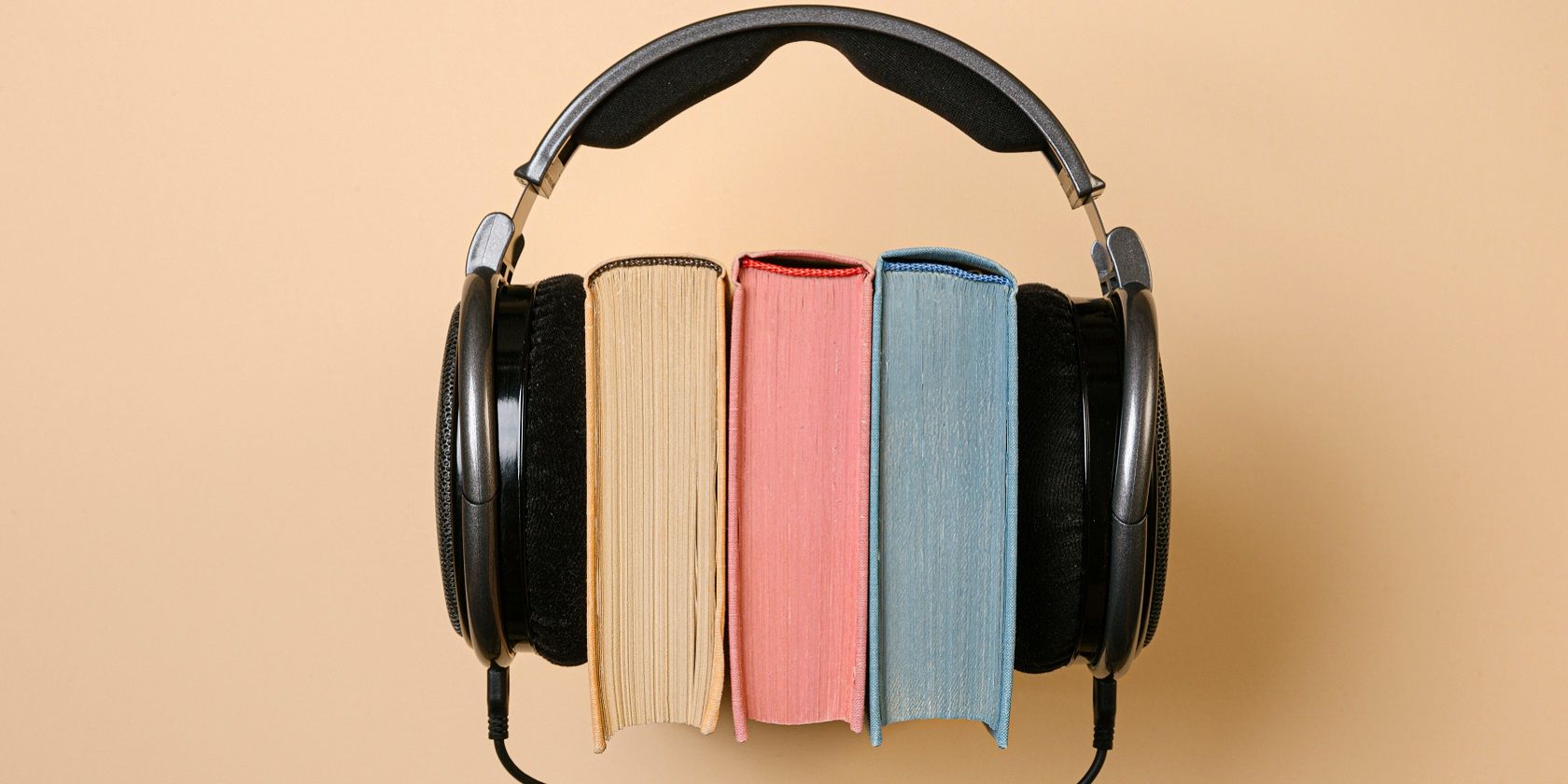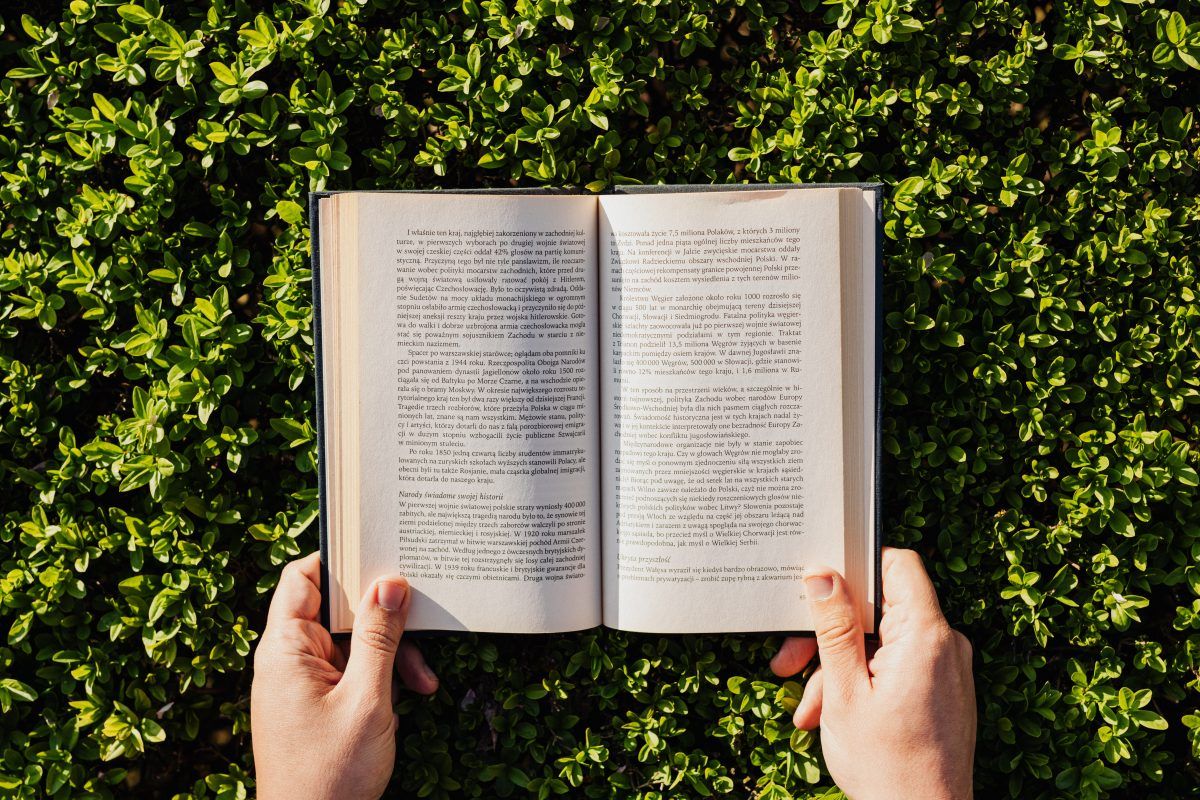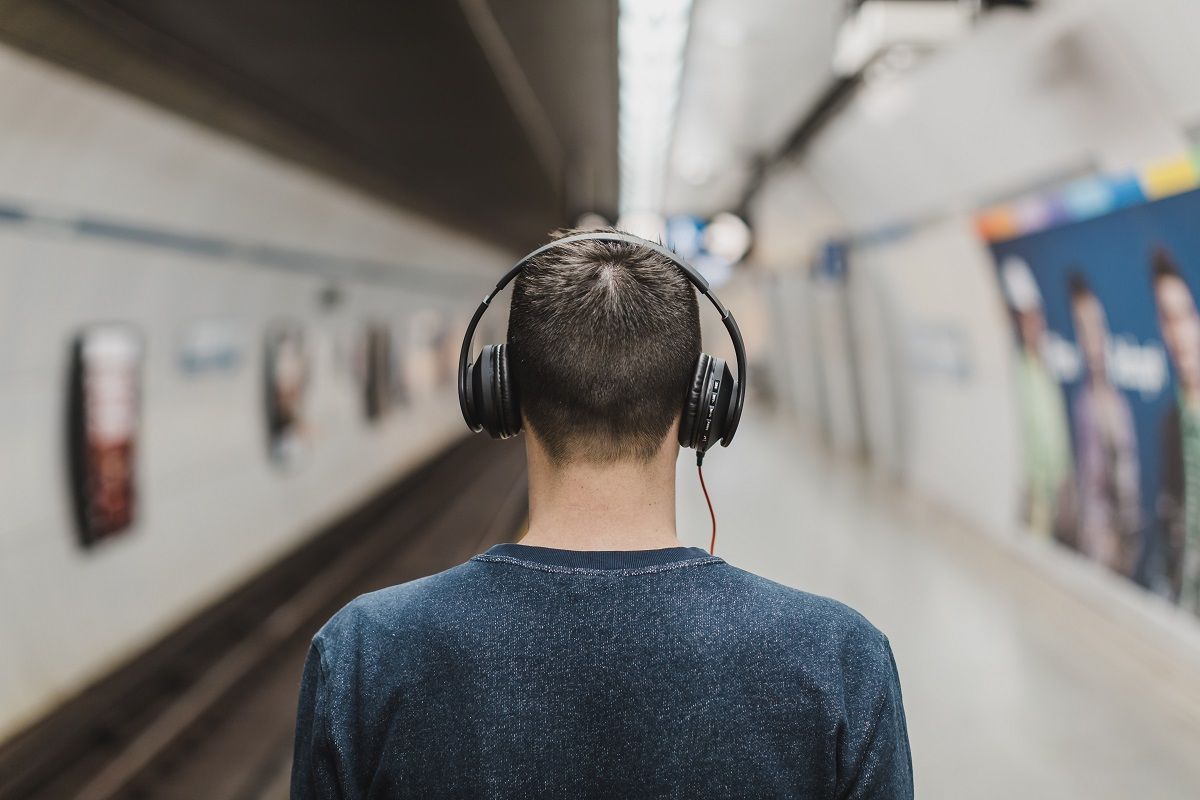For a book lover, few things compare to the joy of a new book.
We live in a time when you can get the same book in audio format and as a physical copy. But does one medium stand above the rest? What's the best way to consume a book?
Let's compare the pros and cons of audiobooks and physical copies and determine if one stands out as the better option to use.
The Benefits of Physical Books
Holding a book in your hands is unlike anything else. Feeling its weight, enjoying the cover art, and that new book smell truly give it an advantage over every other medium.
Physical books also allow you to keep a library and display everything you've read or plan to read, essentially giving them a dual purpose as decor. It's also a great conversation starter since guests can see what interests you with a simple look.
Another perk of keeping a library is that you see exactly how many books you own. It's a source of pride to see the shelves filled, and there's often a need to expand the collection further.
You don't need to use a device and ensure it's charged or pay for a subscription to read a physical book. In a power outage or when your battery is low, that's probably the best thing you can do with your time—pick up a physical book.
Once you own a copy of a book, no changes can occur to it. That may seem odd, but we live in a time when censorship is a thing. Authors have the chance to go back to their books, implement changes, and release the edited version. And they don't necessarily have to inform readers of that. When you have a physical copy of a book, you can't suffer any censorship unless you make it yourself.
Believe it or not, there's also a medical benefit to reading a physical book. It reduces your screen time and helps you relax better as you drift off in thoughts and imagination. With screens lurking everywhere, taking a book to the park can prove an excellent escape.
Also, you can often find books for cheap or even for free. Thrift stores, book exchange groups, and places where you can drop off a book that you're done with so someone else can get and enjoy it are a great way to get your hands on a title for next to nothing.
The Drawbacks of Physical Books
Books take up a lot of space or, at the very least, require a dedicated space where you can store them. Shelves, cupboards, under the bed, wherever it is, they need space, unlike audiobooks that don't reside in the physical world.
What's more, books are heavy! Moving them even around your house is quite a task, and if you have to relocate, you better prepare for some heavy lifting. That's a pretty massive drawback, considering it takes only a few clicks of the mouse or flicks of the finger to move audiobooks.
They're also inconvenient to enjoy when it's dark. If you feel like reading before bed, you need a night light as you can't read a physical book without it. If you were going for the darkened room ambiance, hoping to get yourself to fall asleep faster, that's not something you can do with a physical book title. But it's something you can do with an audiobook, especially if you set a timer and prepare to drift off as you listen.
Even though you can get some titles for cheap or free, others hold their value and can cost you a pretty penny. Even if you scout for sales and discounts, you might end up paying full price for some titles.
What's more, they damage easily. Even if you destroy the device that's holding your audiobooks (phone, laptop, etc.), the books themselves retain no damage. You can still hold out hope that your files can get restored. With physical copies, it's different. Spills with liquids or foods, rain, snow, accidental rips, a pet that's a bit too curious... pretty much everything threatens a book's fragility.
And, last but not least, they're not good for the environment. With people trying to hold back on using paper with bills and whatnot, spending money for a tree-killing paper book seems counterproductive.
The Benefits of Audiobooks
Audiobooks are perfect for people who live in cramped spaces and can't afford to store physical titles. Or people who move around a lot because of jobs, school, or whatever else. The only space audiobooks take is on the device they get stored on, making them extremely easy to move and keep.
Since they live on the device, you choose to keep them on, you can enjoy them everywhere as long as that device is with you. Much like with physical books, you can listen to an audio one on the train, plane, in the park, or a café.
A massive benefit to audiobooks is that you don't need to be stationary to enjoy them. You don't need to hold the book in your hands, which opens the door to multitasking. You can listen to a book while driving, cooking, cleaning, or generally doing chores around the house.
Audiobooks also make listening to a title before bed an extremely easy process. You can "read" the book in complete darkness. If you're using Audible, it lets you set a timer to stop after an hour, knowing that you're free to drift off if you get sleepy.
Finding your next read is a breeze. Say you're consuming a book that's part of a series. When it comes to audiobooks, it's much faster and easier to get the following title after you finish your current one. If the book ends in a cliffhanger, wouldn't you rather continue listening to how it continues immediately?
Or, would you instead prefer to go to a physical bookshop or online to order the copy and waste time waiting? Audible is right there waiting to help you enjoy your series with zero delay. And if you're not a fan of the Audible service, there are plenty of alternatives to Audible.
Listening to audiobooks tends to feel like entertainment, as if you're consuming a type of media, like a podcast, TV series, movie. That makes it way less intimidating, especially when you tackle a long book.
Looking at the bulk of pages in a physical copy can discourage you from even beginning your reading experience. While seeing that same book takes 60 hours to listen through can seem like something pleasant to look forward to or even a challenge. What if you listen on 2x speed? What if you tried to listen through it in two days? It offers plenty of ways to gamify the process, which makes it more fun.
The Drawbacks of Audiobooks
Audiobooks might not take physical space, but they do take a lot of space on your device. They tend to range between 50 and 300MB, and if you have a lot of unused space on your device or an SD card with extra storage, that might not be an issue. It's still something to consider, though.
You need access to power to consume audiobooks. A phone, laptop, tablet, PC, whichever device you use either needs to remain plugged in to a power source or to have a well-charged battery.
In case of a power outage, when you might need to conserve your battery, you have to consider if it's worth wasting it on an audiobook. Whereas with an actual book, you can crack it open and start reading.
Audiobooks are pricier than physical copies. Apart from everything that physical books require to get printed and sold, audiobooks also have an added cost of a voice actor, or several, among other things. That doesn't mean that you can't find free audiobooks to enjoy, but more often than not, you have to pay to access audiobooks.
And a lot is riding on that narrator reading through the book for you. If you don't like the voice actor choice, it reflects poorly on the book itself.
You might find their voice annoying, their delivery to be off, or the voices you hear may not match those you imagined the characters to have. If they're not doing a good job or putting in the effort to make the process engaging, it can prompt you to drop the book altogether, even if the plot enticed you initially.
Is One Truly Better Than The Other?
The answer is no—neither physical books nor audiobooks definitively stands above the other.
Audiobooks and physical copies have their pros and cons, ranging from mundane concerns like space all the way to the issue of accessibility. For example, audiobooks are the perfect choice for visually impaired people or those with motor control issues who won't have to worry about holding up a book. And physical copies are better for ones with hearing loss.
You don't have to choose between the mediums. Instead, use both. When you have a busy day full of house chores, an audiobook is the best choice. When you want to take a break and enjoy some reading, a physical copy is what you want.
As long as you're consuming a book, the format that lets you do it doesn't matter much.






